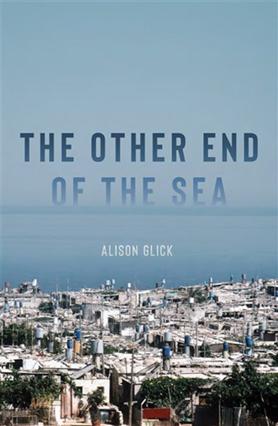You are here
The freedom to unfurl
By Sally Bland - Aug 27,2017 - Last updated at Aug 27,2017

Euphoria
Lily King
New York, Grove Press, 2014
Pp. 261
Lily King’s fictionalised account of a pivotal interval in the life and work of the influential American anthropologist, Margaret Mead, is set in the Territory of New Guinea. Now an independent state in the eastern half of the second largest island in the world, the western section being part of Indonesia, it remains one of the most diverse and least explored areas of the globe.
Think what it was like in the early 20th century, when the first Western anthropologists began to arrive. King’s vibrant, but not overly profuse descriptions of the tropical jungle and its exotic inhabitants are certainly part of the novel’s charm, but not the main one.
“Euphoria” is overwhelmingly fascinating, but more because of the author’s nuanced depiction of the three main characters, their love triangle, and the ideas and emotions which motivate their research and romance. The novel was inspired by Mead’s life, but not in terms of events, for many of these are changed.
Rather, the story is true to Mead’s spirit and ideas, especially her conviction in the intertwining of the personal and the professional that inspires the very structure of the novel, driving the plot and filling it with romantic and moral tension. For the three anthropologists in the novel, scholarly theories, and their ideas about love and life are so tightly bound together as to defy separation, and it is King’s skilful rendering of this tightness which is her greatest achievement.
In 1933, anthropologists Margaret Mead, Reo Fortune and Gregory Bateson spent some months together on the Sepik River in New Guinea, studying what were considered primitive tribes — the primary subject matter of the profession at that time. While retaining much of the real backgrounds of the three, King assigns them different names and fates. [Mead was actually married to both men, but the novel occurs at the time of her marriage to Fortune.]
Mead’s stand-in, Nell, feels stifled by her husband Fen’s possessiveness. While his priority is gathering relics [ownership], hers is participating in the indigenous people’s social life in hopes of discovering alternative patterns of child-rearing, sexuality and mourning that would make humans more free, compassionate and peaceful than in Western societies. “Always in her mind there had been the belief that somewhere on earth there was a better way to live, and that she would find it.” [p. 107]
In Andrew [modelled on Bateson], Nell finds a kindred spirit with whom she can discuss her theories and discoveries about the tribes they are studying in the expansive, open-ended way she considers productive. This leads her to share with him the euphoria she experiences when she feels she has begun to understand a new society. “It’s a delusion… and it’s followed by the complete despair of ever understanding anything. But at that moment the place feels entirely yours. It’s the briefest, purest euphoria.” [p. 50]
Andrew is lonely, having worked in an isolated area for two years. Encountering Nell is exhilarating. “For so long I’d felt that what I’d been trained to do in academic writing was to press my nose to the ground, and here was Nell Stone with her head raised and swiveling in all directions.” [p. 84] Their falling in love makes the professional team a love triangle. Romantic considerations underlie their mutual discussions, as well as their interactions with the indigenous people. Being the only foreigners in a remote environment furthers compresses their interaction. One does not know in which direction the triangle will explode.
Since that time, anthropology has gone way beyond only studying primitive societies. Yet, many issues raised by the novel, and the ideas debated by Nell, Fen and Andrew, are still relevant. Some of these issues are ethical, such as whether it is admissible to take away valuable relics, or to share detailed knowledge of a locality gained in field research, with armies or intelligence services, and if anthropologists can avoid being identified with colonial enterprises.
Another issue is how anthropology, like some other social sciences, constantly has to prove itself alongside the “hard” sciences. Other questions are philosophical, like the dangers of preconceived ideas about what is “natural” or “normal”, or whether the researcher should go beyond observation to share findings with the subjects and elicit their views.
Most interesting is the question of whether one can truly understand another culture. Andrew despairs of the researcher’s ability to be objective, finding that analyses of other cultures say more about the researcher than about the people under study, whereas Nell is at home with the limits of subjectivity, knowing that it cannot be otherwise and that a person can have only one perspective. “But our perspective can have an enormous wingspan, if we give it freedom to unfurl”. [p. 50]
To enrich the plot and increase its wingspan, King writes from two perspectives, letting Andrew narrate most chapters but interspersing chapters composed of Nell’s diary-like notes. With imagination, insight and authenticity, King has crafted an unforgettable tale of adventure, romance and socially relevant ideas which is hard to put down.
Related Articles
This is a love story with more than one twist. Nothing is completely standard or expected, whether the characters, setting, plot events or conclusion. “The Other End of the Sea” is American writer Alison Glick’s first novel, and she bases it largely on her own experience living in Palestine and Syria in the 1980s and early 1990s.
AMMAN — The idea to develop the Nabulsi complex in Hisban into a community centre came ten years ago from Oystein LaBianca, an American-Norw


















